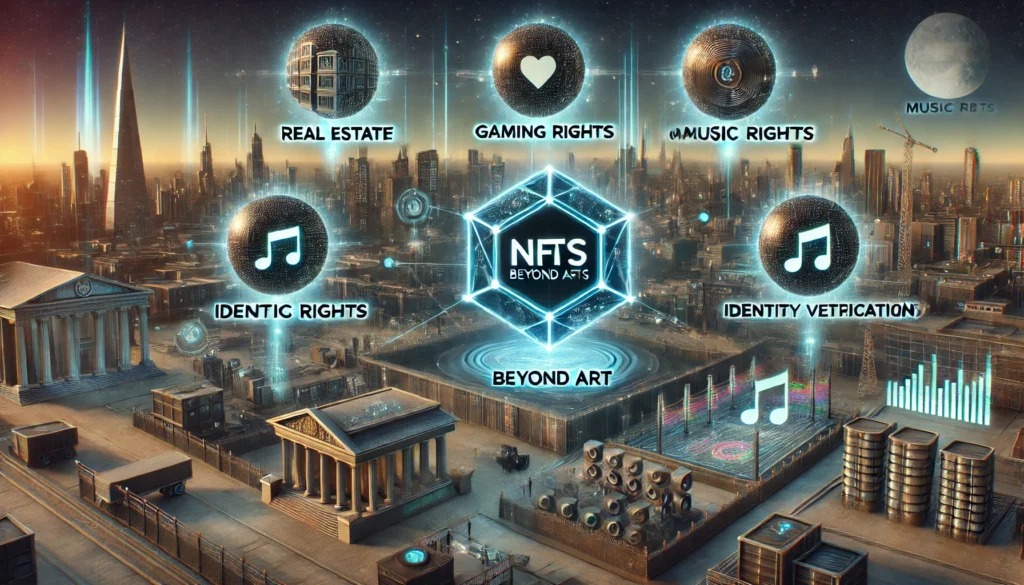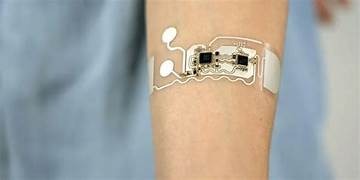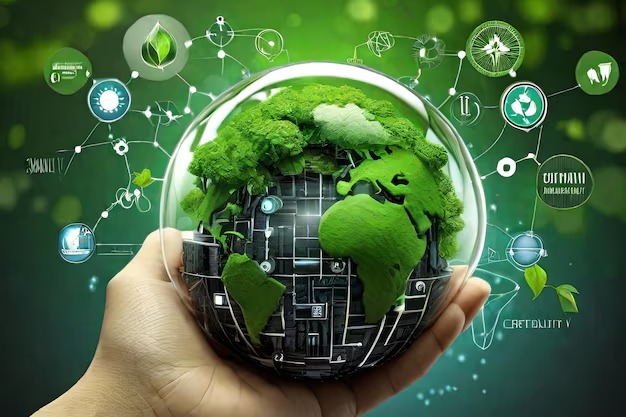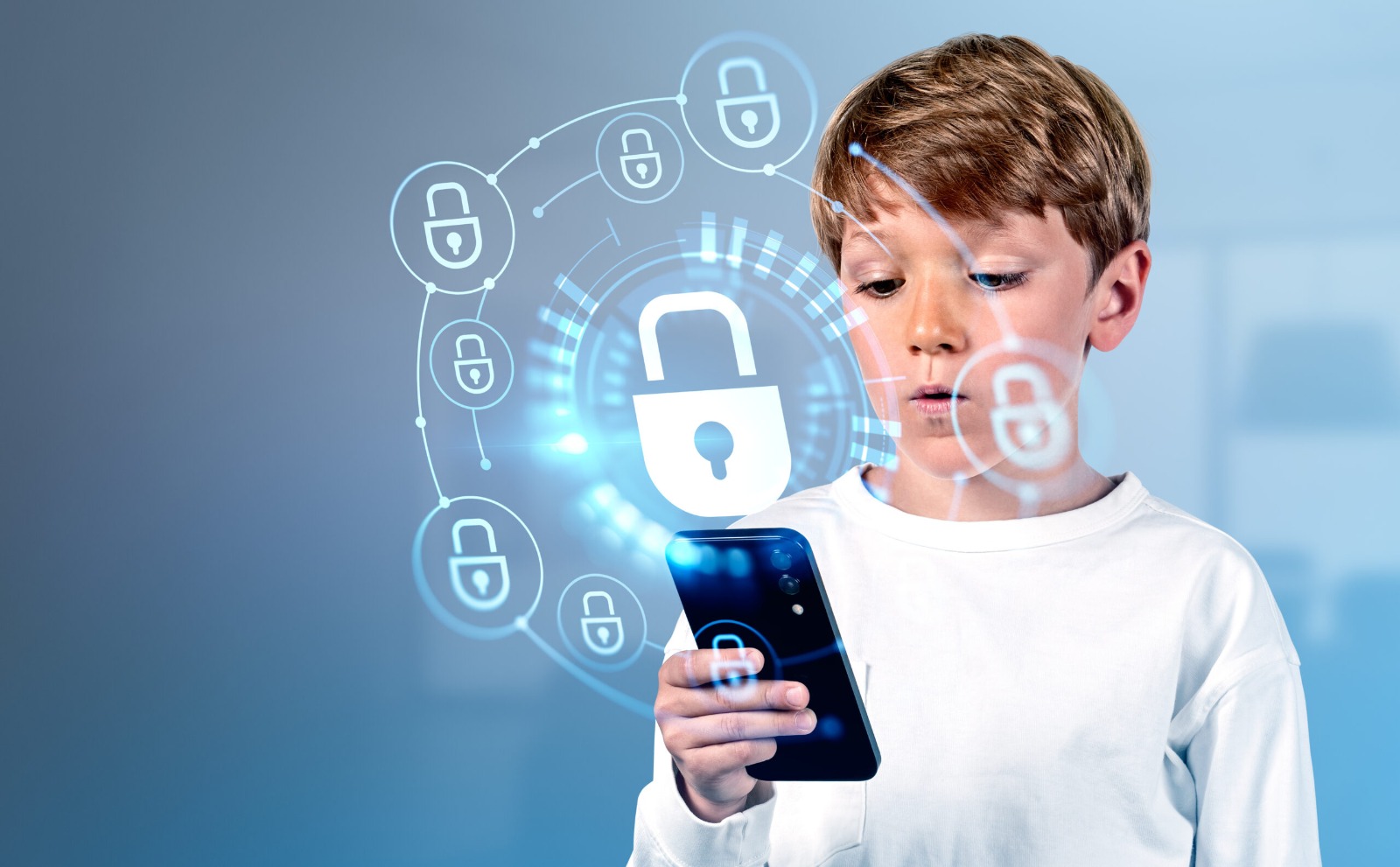
NFTs Beyond Art: Real-World Use Cases in 2025.
"Exploring the Evolution of NFTs Beyond Digital Art, This Article Delves Into How Non-Fungible Tokens Are Transforming Real Estate, Gaming, Healthcare, Supply Chains, Education, Music, Fashion, and Governance in 2025, Enabling Secure Ownership, Transparency, and Innovation Across Industries, Demonstrating That NFTs Have Moved From Speculative Collectibles to Practical Tools Shaping the Future Digital Economy."
✨ Raghav Jain

Introduction
When the NFT (Non-Fungible Token) boom first caught mainstream attention in 2021, it was largely associated with digital art and collectibles. Headlines were filled with stories of JPEGs being sold for millions of dollars, memes becoming valuable assets, and virtual avatars changing hands for staggering sums. While this initial wave brought NFTs into the public consciousness, it also created skepticism. Were NFTs just an overhyped bubble for digital art?
Fast forward to 2025, and the narrative has shifted dramatically. NFTs have evolved far beyond art, now representing a new layer of digital ownership and trust across multiple industries. By leveraging blockchain’s transparency, immutability, and decentralization, NFTs are becoming integral to sectors like real estate, gaming, supply chains, healthcare, and even education. The technology is no longer confined to speculative digital collectibles—it is becoming infrastructure for the future economy.
This article explores the real-world use cases of NFTs in 2025, how they are reshaping industries, and what the future holds.
1. NFTs in Real Estate: Digital Deeds and Tokenized Ownership
One of the most groundbreaking applications of NFTs lies in real estate. Property ownership is traditionally complex, requiring paperwork, notaries, and legal intermediaries. In 2025, NFTs are transforming this process through tokenized property ownership.
- Property Deeds as NFTs: Instead of stacks of legal documents, real estate deeds are now stored as NFTs on blockchain platforms. Ownership transfers happen instantly, securely, and with verifiable authenticity. Countries like Estonia and Singapore have already piloted NFT-based land registries.
- Fractional Ownership: NFTs allow a property to be divided into digital tokens, enabling multiple owners to invest in high-value assets such as luxury apartments, commercial real estate, or farmland. This democratizes access to real estate investment.
- Rental and Leasing Agreements: Smart contract–powered NFTs automate rental agreements, ensuring tenants and landlords both have transparent, enforceable terms without middlemen.
This reduces fraud, accelerates transactions, and increases liquidity in real estate markets.
2. Gaming and Virtual Economies
The gaming industry was one of the first to embrace NFTs, and in 2025 it remains a dominant player in adoption. Unlike traditional games, where in-game assets are owned by the developer, NFTs give true ownership to players.
- Playable NFTs: Characters, weapons, and skins are tokenized as NFTs, meaning players can sell, trade, or use them across multiple games.
- Interoperability: Blockchain gaming platforms are now interconnected, enabling a sword earned in one game to be usable in another—something impossible in pre-NFT gaming ecosystems.
- E-sports and Tournaments: Winning trophies and rare achievements are minted as NFTs, granting permanent recognition to players.
Play-to-earn models have matured into play-and-earn, where NFTs not only provide entertainment but also financial opportunities.
3. Healthcare: Medical Records and Identity Verification
The healthcare sector is notoriously fragmented, with patient records spread across hospitals, clinics, and providers. NFTs are changing this by enabling secure, patient-owned digital identities.
- Medical Records as NFTs: Each patient’s record is tokenized, encrypted, and accessible only through secure blockchain-based keys. Patients own their medical histories and can grant or revoke access to doctors or insurance companies.
- Clinical Trials and Drug Tracking: NFTs ensure transparency in medical research, preventing data tampering and ensuring that participants are properly compensated.
- Medical Credentials: Doctors’ licenses, certifications, and training can be stored as NFTs, making fraud nearly impossible and ensuring global verification.
In 2025, NFTs are making healthcare not only more secure but also more patient-centric.
4. Supply Chains and Logistics
Counterfeit products and lack of transparency have long plagued global supply chains. NFTs provide a solution by linking physical goods to digital certificates of authenticity.
- NFT-Backed Goods: High-value items like luxury watches, designer handbags, and pharmaceuticals now come with NFT certificates that verify authenticity and track ownership history.
- Sustainability Tracking: Companies are using NFTs to track carbon footprints and prove eco-friendly sourcing. For example, coffee beans can be traced from farm to cup with NFT-linked certifications.
- Logistics Optimization: NFTs attached to shipping containers or products allow companies to track goods in real time, reducing theft, delays, and errors.
This enhances consumer trust and enables brands to fight counterfeiting, a $500 billion annual problem.
5. Education and Credentials
Fake diplomas and unverifiable qualifications are common issues worldwide. NFTs provide a tamper-proof solution.
- Digital Diplomas: Universities now issue degrees as NFTs, which employers can instantly verify.
- Skill Certifications: Online courses, workshops, and training programs issue NFT-based certificates that cannot be forged.
- Lifelong Learning Records: Individuals maintain a blockchain wallet of their academic and professional achievements, accessible across borders and industries.
This globalizes trust in credentials, especially for remote workers and digital nomads.
6. Music and Entertainment Rights
NFTs in music began as artists selling albums and singles as limited-edition tokens. By 2025, the use case has expanded.
- Royalty Distribution: Smart contracts automatically distribute royalties from streaming platforms to musicians, producers, and collaborators.
- Fan Engagement: Musicians sell exclusive backstage passes, meet-and-greet opportunities, and unreleased songs as NFTs, creating deeper connections with fans.
- Film and TV Rights: Independent filmmakers use NFTs to crowdfund movies by offering tokenized shares of future profits.
This eliminates exploitation by middlemen and empowers creators.
7. Identity and Voting Systems
NFTs are playing a critical role in governance and identity management.
- Digital IDs: Citizens in some countries now hold NFT-based IDs, allowing them to prove identity securely online and offline.
- Voting: NFT-powered voting systems reduce fraud by making ballots unique, traceable, and tamper-proof. Countries like South Korea and Switzerland are experimenting with such systems.
- Travel Documents: Passports and visas stored as NFTs speed up international travel while enhancing security.
NFTs here represent a leap forward in digital democracy and secure identification.
8. Intellectual Property and Legal Industry
NFTs provide a new way to protect intellectual property (IP).
- Patents and Copyrights: Inventors and creators mint patents as NFTs, creating immutable proof of ownership.
- Licensing Agreements: Licensing deals are automated through smart contracts, ensuring fair payment and usage rights.
- Legal Evidence: Courts in some jurisdictions now accept blockchain-based NFTs as admissible proof of contracts and ownership.
This reduces disputes and ensures legal clarity.
9. Fashion and Luxury Goods
NFTs are reshaping fashion by merging digital and physical ownership.
- Digital Fashion: People buy NFT wearables for avatars in the metaverse while also receiving a physical version in real life.
- Authentication: Luxury fashion houses issue NFT certificates for each product, ensuring customers know they are buying authentic goods.
- Resale Market: Secondary markets for high-end sneakers, handbags, and jewelry are now powered by NFTs that track provenance.
NFTs make fashion both more sustainable and transparent.
10. The Future of NFTs Beyond 2025
While 2021 was the year of hype, 2025 is the year of utility. The next five years could see even deeper adoption:
- Governments issuing NFT-based national currencies.
- Integration with artificial intelligence to create dynamic NFTs that evolve over time.
- NFT-backed mortgages and loans becoming mainstream.
- Expansion into energy and climate sectors with carbon credit NFTs.
The potential of NFTs is only beginning to unfold.
When NFTs (Non-Fungible Tokens) first burst into mainstream headlines around 2021, they were widely associated with digital art and collectibles—people buying JPEGs of monkeys, memes being sold for millions, and artists suddenly earning fortunes through blockchain-enabled sales. Many dismissed the phenomenon as a speculative bubble, a fad that would fade once the hype cooled down. However, as of 2025, NFTs have moved far beyond their initial reputation and are now transforming real-world industries in ways few could have predicted just a few years ago. Built on blockchain technology, NFTs offer uniqueness, verifiable ownership, and immutability, qualities that are invaluable across sectors far more practical than art. The most obvious shift has been in real estate, where NFTs have replaced paper deeds with digital certificates of ownership, cutting down on fraud, bureaucracy, and delays while also enabling fractional ownership that allows investors to buy small portions of high-value properties such as luxury apartments, office spaces, and even agricultural land, effectively democratizing access to the real estate market. Beyond deeds, NFTs are also automating rental and leasing agreements through smart contracts, ensuring tenants and landlords have transparent, enforceable terms without third-party intermediaries. The gaming world, which had already experimented with NFTs during the early hype, has now fully embraced them in 2025, creating entire economies where characters, weapons, skins, and items are tokenized, granting true ownership to players who can trade, sell, or use these assets across multiple games thanks to interoperability between platforms, a stark departure from traditional game models where items were locked within one ecosystem. In e-sports, rare achievements, trophies, and tournament rewards are permanently minted as NFTs, providing recognition and value for competitive players. Another industry where NFTs are making revolutionary changes is healthcare, which has long suffered from fragmented, insecure record-keeping systems; now, medical records are securely stored as NFTs, encrypted and owned by patients who can decide who accesses their data, whether it be doctors, hospitals, or insurance companies. This patient-centric model also reduces fraud, as credentials of doctors, nurses, and medical practitioners can be minted as NFTs, ensuring verification across borders and institutions. Additionally, NFTs are being used in clinical trials and pharmaceutical supply chains to guarantee transparency and prevent data manipulation, while drug authenticity can be tracked from production to patient delivery. Speaking of supply chains, NFTs are becoming essential in logistics and product verification, particularly for luxury goods, designer fashion, and pharmaceuticals, where counterfeit products are a global problem costing hundreds of billions annually. By linking physical items to NFT certificates of authenticity, consumers can confirm an item’s origin and history, while companies can trace raw materials, sustainability certifications, and shipping processes with real-time accuracy, reducing theft, fraud, and inefficiency. Education has also undergone an NFT-driven transformation: diplomas, certificates, and skill accreditations are now issued as NFTs that are tamper-proof and instantly verifiable, making fake degrees nearly impossible to pass off. Universities worldwide have embraced digital credentials, while online learning platforms issue blockchain-based badges and records of achievement that students carry throughout their careers in a lifelong learning wallet, accessible to employers anywhere in the world. In the entertainment sector, musicians, filmmakers, and other creators are leveraging NFTs to secure fairer, more transparent royalties through smart contracts that automatically distribute revenue whenever their work is streamed, sold, or used. Artists also offer fans exclusive content—limited edition songs, backstage passes, or behind-the-scenes videos—as NFTs, creating deeper engagement and more sustainable income. Filmmakers use NFTs for crowdfunding, selling tokenized rights to future profits and bypassing traditional studio systems. Identity and governance are yet another frontier: governments and private organizations in 2025 are experimenting with NFT-based digital IDs that allow secure verification of citizens’ identities, passports, and travel documents, while NFT-powered voting systems ensure ballots are unique, traceable, and tamper-proof, reducing election fraud. In some nations, pilot programs for NFT-based passports and driver’s licenses are already underway, making official identification both more secure and easier to manage digitally. Intellectual property protection is also being strengthened by NFTs, as creators and inventors mint their patents, trademarks, and copyrights onto blockchains, ensuring immutable proof of ownership and reducing disputes. Smart contracts also handle licensing agreements, making royalty distribution automatic and transparent while providing courts with blockchain-verified evidence when needed. The fashion and luxury industry has found particularly exciting uses for NFTs, with digital fashion items for avatars in the metaverse linked to physical products in real life, enabling a seamless blend of digital and physical ownership. Luxury brands now issue NFT certificates of authenticity for high-end handbags, sneakers, watches, and jewelry, ensuring provenance tracking for both primary sales and resale markets, while sustainability-conscious brands use NFTs to prove ethical sourcing and eco-friendly production. Looking forward, NFTs in 2025 are not just experimental novelties but core infrastructure for the future digital economy, and the coming years may bring even deeper integration: NFT-backed mortgages and loans could soon become mainstream, governments may begin issuing NFT-based currencies, and NFTs could play a central role in carbon credit markets by tracking and verifying environmental impact. Artificial intelligence is also expected to merge with NFTs to create dynamic assets that evolve over time, adding another layer of functionality and personalization. What began as quirky million-dollar JPEGs has matured into a technology reshaping how we live, work, transact, and trust in both digital and physical spaces. In short, NFTs are no longer about hype or speculation—they are about utility, security, transparency, and global interconnectedness.
When NFTs, or Non-Fungible Tokens, exploded into mainstream awareness in 2021, they were mostly linked with digital art, collectibles, and speculative hype, where memes, GIFs, and avatars sold for millions of dollars, but by 2025, the conversation has shifted dramatically, and NFTs are no longer just about overpriced JPEGs—they have become a backbone of digital ownership, authentication, and trust across industries as diverse as real estate, healthcare, supply chain, education, governance, music, and fashion, showing that the true value of NFTs lies not in hype but in their practical use cases. In real estate, for example, NFTs have replaced paper deeds with blockchain-secured certificates, reducing fraud, legal disputes, and paperwork delays while enabling fractional property ownership so investors of all scales can access luxury apartments, farmland, or commercial complexes, and smart contracts now automate rental and leasing agreements, creating transparent and enforceable deals without middlemen. Gaming, always ahead in digital innovation, has transformed through NFTs that allow players true ownership of in-game assets like characters, skins, and weapons, which can be sold or traded freely and even used across multiple games thanks to interoperability, while e-sports trophies and achievements are minted permanently on the blockchain, creating new ways for players to earn recognition and income. Healthcare, long fragmented and inefficient, is finding security and patient empowerment through NFTs, with medical records encrypted as patient-owned tokens that can be shared selectively with doctors or insurers, while clinical trials use NFTs to ensure data transparency and authenticity, doctors’ licenses and credentials are minted for fraud prevention, and pharmaceuticals are tracked from lab to patient to guarantee authenticity. Supply chains and logistics, historically vulnerable to counterfeiting and inefficiency, are becoming transparent through NFT-backed certificates for products like luxury handbags, jewelry, sneakers, and even food, enabling consumers to verify origin, authenticity, and sustainability, while shipping companies track goods in real time through NFT-linked systems, cutting down on theft and inefficiencies. Education has embraced NFTs as a weapon against fake credentials, with universities issuing diplomas as tamper-proof digital tokens and online platforms certifying skills that employers can instantly verify, while individuals build lifelong learning wallets containing NFT-based records of their degrees, certificates, and experiences, accessible globally. In music and entertainment, NFTs are powering automatic royalty distribution through smart contracts, ensuring fair payments to artists, producers, and collaborators, while musicians connect with fans by offering exclusive passes, unreleased songs, or special experiences as NFTs, and filmmakers crowdfund projects by selling tokenized shares of profits, bypassing traditional gatekeepers. Identity management and governance have also embraced NFTs, with some governments piloting NFT-based IDs, passports, and driver’s licenses, which make verification faster and harder to forge, while voting systems based on NFTs ensure ballots are secure, unique, and tamper-proof, reducing fraud and boosting trust in elections. Intellectual property protection has become stronger thanks to NFTs that record patents, copyrights, and trademarks on immutable blockchains, reducing disputes, making licensing easier through automated smart contracts, and providing verifiable evidence in courts, while the fashion industry has created hybrid experiences where digital wearables for avatars are linked to physical items, and luxury brands attach NFT certificates to every product to combat counterfeiting and strengthen the resale market. Looking into the future, NFTs may soon back mortgages and loans, governments might issue NFT-based currencies, environmental projects are likely to expand NFT-based carbon credits to verify eco-friendly practices, and artificial intelligence could create dynamic NFTs that evolve with use, creating an even more interactive and personalized digital economy. In summary, NFTs have grown beyond speculative art into practical infrastructure across multiple sectors, enabling faster, safer, and more transparent transactions, empowering individuals with ownership of data and assets, and making processes more democratic and verifiable, so that what began as quirky digital collectibles is now shaping the backbone of tomorrow’s economy. To answer some key questions: What are NFTs, and why are they important beyond art? They are unique blockchain tokens that prove ownership and authenticity, and their importance lies in applications like real estate, healthcare, and governance. How do NFTs benefit real estate? They digitize property deeds, reduce fraud, and enable fractional investment. Can NFTs improve healthcare? Yes, by giving patients ownership of records, tracking drugs, and verifying doctor credentials. How do NFTs fight counterfeiting in supply chains? By attaching NFT certificates that allow real-time verification of authenticity and origin. Are NFT credentials more reliable than traditional degrees? Absolutely, as they are tamper-proof and instantly verifiable. What role do NFTs play in governance? They power secure digital IDs, passports, and tamper-proof voting systems. Will NFTs remain relevant in the future? Without a doubt, because their utility in securing ownership, improving transparency, and democratizing access ensures they will become as invisible yet essential as the internet itself.
Conclusion
NFTs have traveled far beyond the digital art frenzy of the early 2020s. In 2025, they are revolutionizing real-world industries—transforming real estate transactions, securing healthcare data, authenticating supply chains, protecting intellectual property, and even powering democratic processes. What began as an experimental digital collectible has become a core building block of the future digital economy.
The future of NFTs lies not in speculation, but in practical use cases that enhance security, transparency, and ownership in the physical and digital worlds alike. As adoption spreads, NFTs will become invisible infrastructure—just like the internet is today—shaping how we buy, sell, vote, work, and live.
Q&A Section
Q1: What are NFTs, and why are they important beyond art?
Ans: NFTs (Non-Fungible Tokens) are unique digital assets stored on a blockchain. Beyond art, they are important because they provide proof of ownership, authenticity, and transferability across industries such as real estate, healthcare, gaming, and education.
Q2: How do NFTs benefit real estate transactions?
Ans: NFTs make property transactions faster and safer by replacing paper deeds with digital certificates. They also allow fractional ownership, making real estate investment accessible to more people.
Q3: Can NFTs really improve healthcare?
Ans: Yes, NFTs allow patients to own their medical records securely, ensure transparency in clinical trials, and verify medical credentials. This reduces fraud and empowers patients.
Q4: How do NFTs fight counterfeiting in supply chains?
Ans: By linking physical goods to NFT certificates, consumers and companies can verify authenticity and track product history, making it harder for counterfeiters to thrive.
Q5: Are NFT credentials more reliable than traditional degrees?
Ans: Absolutely. NFT-based diplomas and certifications are tamper-proof and instantly verifiable, eliminating the problem of fake qualifications.
Similar Articles
Find more relatable content in similar Articles

Digital DNA: The Ethics of Gen..
Digital DNA—the digitization a.. Read More

Wearable Health Sensors: The D..
Wearable health sensors are re.. Read More

Data Centers and the Planet: M..
As cloud computing becomes the.. Read More

Protecting Kids in the Digital..
In an increasingly connected w.. Read More
Explore Other Categories
Explore many different categories of articles ranging from Gadgets to Security
Smart Devices, Gear & Innovations
Discover in-depth reviews, hands-on experiences, and expert insights on the newest gadgets—from smartphones to smartwatches, headphones, wearables, and everything in between. Stay ahead with the latest in tech gear
Apps That Power Your World
Explore essential mobile and desktop applications across all platforms. From productivity boosters to creative tools, we cover updates, recommendations, and how-tos to make your digital life easier and more efficient.
Tomorrow's Technology, Today's Insights
Dive into the world of emerging technologies, AI breakthroughs, space tech, robotics, and innovations shaping the future. Stay informed on what's next in the evolution of science and technology.
Protecting You in a Digital Age
Learn how to secure your data, protect your privacy, and understand the latest in online threats. We break down complex cybersecurity topics into practical advice for everyday users and professionals alike.
© 2025 Copyrights by rTechnology. All Rights Reserved.